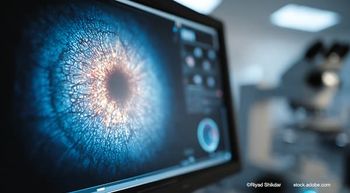
Can optometrists diagnose glaucoma accurately?
With additional training, optometrists are at least as accurate as junior ophthalmologists in diagnosing glaucoma.
With additional training, optometrists are at least as accurate as junior ophthalmologists in diagnosing glaucoma, according to a report published in the December issue of the British Journal of Ophthalmology.
Augusto Azuara-Blanco from Aberdeen Royal Infirmary and colleagues from the University of Aberdeen, Aberdeen, Scotland compared the diagnostic performance of accredited glaucoma optometrists (AGOs) for both the diagnosis of glaucoma and the decision to treat with that of routine hospital eye care, against a reference standard of expert opinion (a consultant ophthalmologist with a special interest in glaucoma).
A total of 100 people took part in the directly comparative, masked performance study. Subjects suspected of having glaucoma underwent a full ophthalmic assessment in both a newly established community optometry led glaucoma management scheme and a consultant led hospital eye service.
There was substantial agreement between the AGO and the consultant ophthalmologist in diagnosing glaucoma (89%) and agreement over the need for treatment was also high at 88%. Agreement between trainee and consultant ophthalmologist in the diagnosis and treatment recommendations were moderate (83%). The diagnostic accuracy of the optometrists was found to be high (0.93) but lower for sensitivity (0.76). The differences in sensitivity and specificity between AGO and junior ophthalmologist were not statistically significant.
The authors of this report concluded that, with additional training in glaucoma, optometrists can be at least as accurate as junior ophthalmologists in diagnosing the disease.
Newsletter
Get the essential updates shaping the future of pharma manufacturing and compliance—subscribe today to Pharmaceutical Technology and never miss a breakthrough.




























